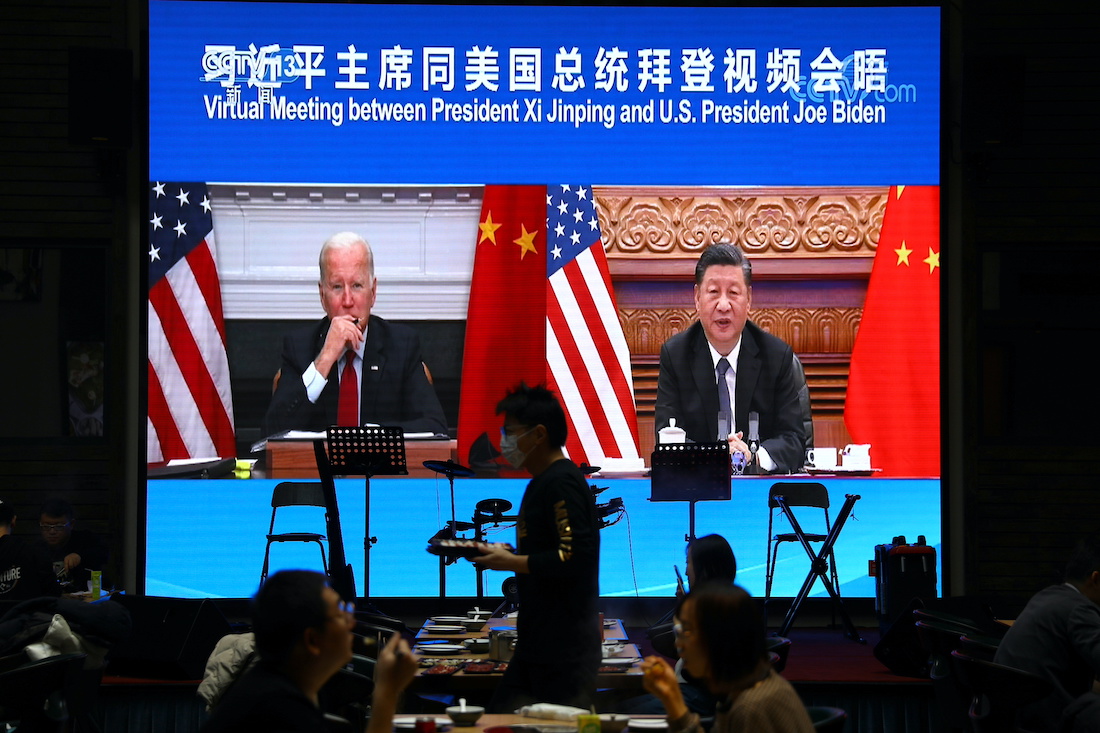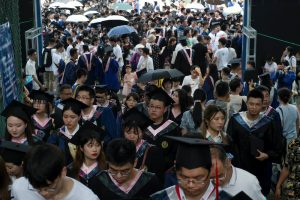China is likely to suffer negative but manageable impacts in the short-term from Western sanctions imposed on Russia for its invasion of Ukraine, but the greatest risk may be the danger to its economy and international standing in the years ahead, a leading US analyst has said.
Chinese exports to Russia, such as finished goods from tech firms like Xiaomi, Lenovo and SMIC, which have enjoyed significant sales in Russia are likely to suffer, according to Scott Kennedy, a senior adviser and Trustee Chair in Chinese Business and Economics at the Center for Strategic and International Studies (CSIS) in Washington.
Imports of commodities such as potash, aluminium and nickel may be cut off because of Western sanctions, which could lead to higher prices, Kennedy said.
And there was also the risk that new supplies of natural gas piped from Russia created a disincentive for Beijing to implement a robust transition to clean energy sources to counter climate change. But China, he said, “will not have much difficulty having the economy grow 4.5-5% this year.”
However, the risks for Beijing were exponentially bigger in the years ahead because of the threat of sanctions on financial institutions and technology companies.
“The real danger here is whether China would risk becoming the target of Western secondary sanctions in order to maintain its support for Moscow,” Kennedy said, adding that if Beijing tried to undermine sanctions its economy could be hit with substantial penalties that would be tougher to manage because most of its international financial dealings “still overwhelmingly occurs in dollars and euros.”
Its Cross-Border Interbank Payment System (CIPS), set up in 2015, was “still not ready for prime time and is not a realistic substitute” for SWIFT, he said.
If China’s tight-tech producers were hit with a ban on imported semiconductors like Huawei was “the consequences would be devastating” – so, China was “likely to at least minimally comply with international sanctions,” Kennedy said.
Shift in Beijing’s Rhetoric
But the greatest threat of the Ukraine crisis to Beijing, he argued, was “that it becomes a pivot in world history that makes it far more difficult for China to achieve its overriding ambition of becoming a military and economic superpower that makes the world safe for state capitalist, authoritarian regimes.”
While there was a growing consensus in Washington that the US and China were strategic rivals for power and influence, debates with other democracies around other world had not been airtight or settled on the extent of the Chinese threat and that had hobbled or narrowed cooperation on a range of issues, the CSIS analyst said.
“The invasion of Ukraine — and China’s apparent condoning of Putin’s actions — may galvanise the US political establishment and the United States’ allies in a way that brings the foreign policy debate to an end and results in a far more robust effort to compete with China, and Russia, in an effort to strengthen and revitalise the liberal international order than would have otherwise been the case,” he said, noting that there were already some signs this was the case.
Beijing had already shifted its rhetoric from embracing Putin and defending Russia’s justification for war to what Foreign Minister Wang Yi called “respecting and safeguarding the territorial integrity of all countries.” But it was clear in the minds of the US and others that Beijing’s true allegiances lie with Moscow, he said.
Despite its unprecedented growth, China could not prosper in a fragmented or decoupled world, because its economy still has critical weaknesses, Kennedy said, noting its “debt-ridden inefficient financial system, yawning inequality,” greying population, endemic pollution and expanding carbon emissions.
Deep ties with the rest of the world had made up for these deficiencies, but if ties with the West were not repaired such problems would get worse and undermine the notion that ‘the East is rising and the West is falling’ – and “the potential loss of inevitable grandeur” could sap momentum from the country’s economic transformation.
• Jim Pollard
























